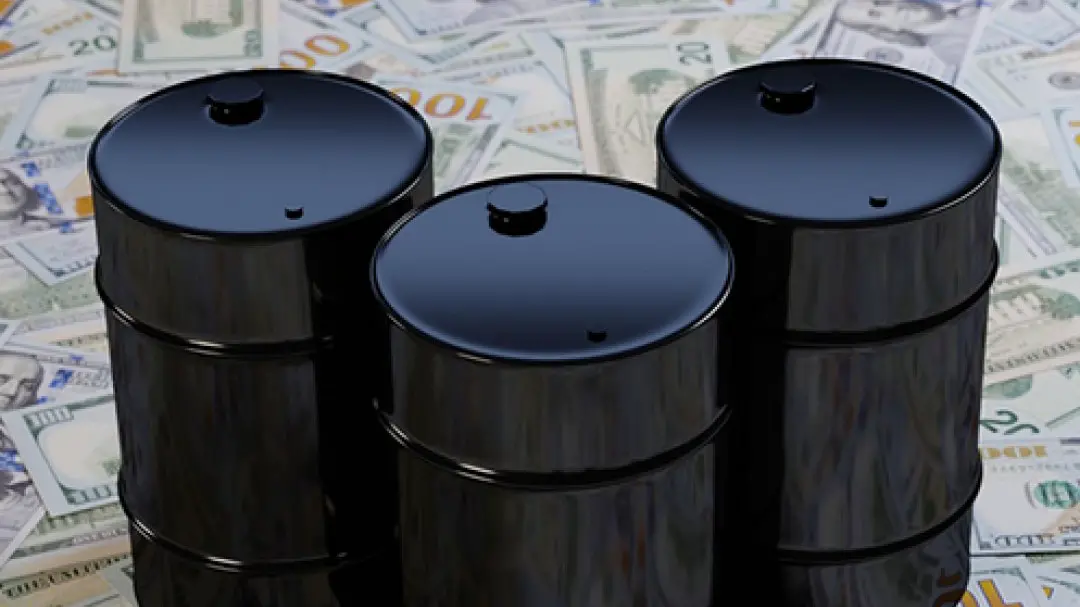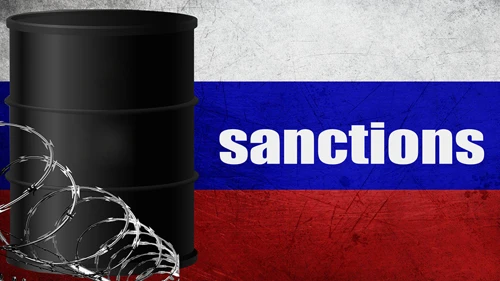Oil prices could hit $150 if Middle East war escalates - World Bank

The World Bank warned on Monday that crude oil prices could rise to more than $150 a barrel if the conflict in the Middle East escalates, threatening a repeat of the 1970s oil price shock if major producers cut supplies.
In its quarterly Commodity Market Outlook, the World Bank said the ongoing conflict between Israel and Hamas could lead to a significant increase in energy and food prices, which would be a “double shock” to commodity markets still reeling from Russia's full-scale invasion of Ukraine.
– The latest conflict in the Middle East comes amid the worst shock to commodity markets since the 1970s – Russia's war with Ukraine, – said Indermeet Gill, chief economist and senior vice president for development economics at the World Bank.
According to the bank's baseline forecasts, overall commodity prices will fall by 4.1% next year, with oil prices falling to an average of $81 per barrel, down from $90 per barrel in the current quarter, due to slowing economic growth.
However, as the report notes, this forecast can quickly change in the event of an escalation of the conflict in the Middle East. In the worst-case scenario, global oil supply could be reduced by 6-8 million barrels per day, which would push prices down to $140-$157 per barrel if leading Arab producers such as Saudi Arabia cut exports.
In scenarios with small to medium disruptions, prices could reach $102-$121 per barrel, the report says. Current global demand for oil is about 102 million barrels per day.
The war in Israel began on October 7, when Hamas began crossing the border into Israel from the Gaza Strip. As a result of the fighting, according to the Israeli authorities, more than 1.4 thousand people were killed and more than 230 were taken hostage. Israeli bombing in Gaza has killed more than 8,000 people and injured more than 20,000, according to Palestinian authorities.
The conflict threatens to spill beyond Israel and the occupied Palestinian territories, and energy analysts warn that global exports could suffer if leading oil producers such as Iran become actively involved.
This month, gas prices in Europe jumped to their highest level since March as traders feared pipeline disruptions would reduce global supplies, but oil markets largely ignored the impact of the conflict.
On Monday, prices for benchmark Brent crude fell by more than 3% to around $87 per barrel, exceeding the $89 mark after the start of the latest conflict. In 2008, on the eve of the global financial crisis, oil prices reached a record high of $147 per barrel.
According to the World Bank, the global economy is more able to withstand a supply shock than in October 1973, when Arab OPEC members cut exports to the United States and other countries that supported Israel in the Yom Kippur War, which led to a fourfold increase in oil prices.
Today, the Middle East plays a smaller role in global oil exports than it did 50 years ago: it accounts for about 30% of supplies, while in the 1970s this figure was 37%.
But 30% is still a large share, warns Ayhan Kose, deputy chief economist at the World Bank.
– When you think about oil prices, what happens in the Middle East does not stay in the Middle East. It has huge global implications," he says.
However, the report warns that there has not yet been a full recovery from Russia's invasion of Ukraine in February 2022, which Kose called “traumatic for commodity markets&rdquo.
In an interview with the Financial Times, he said that a “really negative outcome”would come if the escalation of the conflict leads to a sustained rise in commodity prices, causing a “new wave of inflation”and forcing central banks to act. Gill added: “Policymakers will have to be vigilant”.
According to the Bank, this will have serious implications for food security in poorer countries that are already facing rising levels of hunger. Rising oil and gas prices will also increase the cost of transportation and fertilizers, which will drive up the price of agricultural products.
- "The rise in oil prices, if it continues, will inevitably lead to higher food prices," said Kose, adding that by the end of 2022, almost a tenth of the world's population will be undernourished.
In his opinion, the escalation of the latest conflict will lead to increased food insecurity not only in the region but also globally.




To leave a comment, please log in.